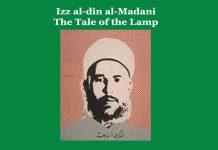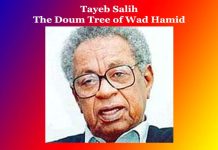A Chekhov | The Bet | An Analytical Study
A Chekhov | The Bet | An Analytical Study
A Chekhov | The Bet | An Analytical Study
‘The Bet’ is a Russian short story written by Anton Chekhov (1860-1904) that deals with the theme of a challenge as the very title suggests. The main tone of the story is tragic and the author, from the very beginning to the very end of the story, keeps his readers hanging up in the midst of suffocated suspense.
The story is about a young lawyer who one day attended a gossip party at the house of a young banker. There were tradesmen, scholars, journalists and lawyers. They talked about a variety of topics. By the by, one of a guest turned their conversation to the subject of capital punishment. Most of the guests disapproved of capital punishment. Some said it to be against the Christian creed and immoral. Some of them thought that capital punishment should be replaced by life imprisonment. But the host did not agree with them. He opined that capital punishment is more moral and humane than life imprisonment. Execution kills instantly, life imprisonment kills by degrees. In the company, there was a lawyer aged twenty-five. He said, on being asked his opinion that if he were offered the choice between the two i.e. capital punishment and the life-imprisonment, he would certainly choose the second. In his view, it was better to live somehow than not to live at all. Then the young banker said that he bet that if the lawyer could do so then he would pay him two million. That was the agreement. The young lawyer signed the bond and from the next day, he began his voluntary imprisonment after the bet in a solitary spot in the garden of the banker arrange specially for the purpose. The condition of his imprisonment was that he would get food, wine, tobacco, musical instrument, books and also could write letters. During the first five years, the lawyer felt terrible loneliness and boredom, drank a lot of wine, and played on piano. For the rest years, he spent reading books on various subjects. Thus almost all the years had passed but there was only one day to the fifteen years. Within those fifteen years, the banker had suffered a loss in his business. He began to regret why he underwent such a bet. If he pays the said amount of money he would be ruined and turn into a beggar. Hence he wished had the lawyer died. But he did not. So he planned to kill him in order to avoid paying off him two million roubles. There were only a few hours to fifteen years. The next day morning he would be released. At the dead of night, the banker entered the prison cell stealthily and saw that the prisoner was sitting on his chair motionless. He made a crackling sound while opening the door yet the prisoner seemed not to wake up. At once his eyes fell on the table and found a letter where there was written that he had no desire for money. All the world and glory seemed nothing to him. So he would himself break the agreement leaving the prison cell five minutes before the stipulated term. The jailor came out. The next day the ward boy informed the host that the prisoner had disappeared.
There are two characters in the story. The young lawyer is the principal character. He is stubborn and bold enough to stake a challenge. The author has portrayed him with fidelity as a man of extraordinary quality. He is not only tragic but pathetic also. He himself proved through his life practically that what he said was true to him. Such a character in world literature is rare and hard to find.
The second character is the banker. He was comparatively younger to the lawyer. But capricious and wasteful for which he lost his business. He seems selfish and miser as he planned to kill the lawyer to avoid paying off his due to the prisoner as per the agreement.
In narrating the story the author has taken to Objective Method with skill.
The story, in Structure, is well one. The exposition is direct but it opens with the reminiscence of the banker. He is seen in a state of downcast pacing from corner to corner of his study room recalling the party he arranged fifteen years ago. Here the suspense of the story begins. But in the opening, the author has introduced the main theme as well as the main character of the story. After this, the story goes on to complications and crises with suffocated suspense. The story seems to end in a climax without any falling action.
The Setting of the story is consistent with the events and situation. The author gives a good deal of description of him main character along with the environment of his incident.
The Dialogues employed in the story are very logical as he uses them economically but all the dialogues have taken his story a step forward and unfold the inner nature and motives of his characters.
The author has expressed his Philosophy of Life through the mouth of his main character as a priori in the opening and proves it through his life himself. The philosophy of life as expressed in the story is that it is better to live somehow than not to live at all.
The Language of the story is very simple as it is characterized by the use of concrete and formal words and phrases and is free from coarse imagery.
All the Qualities of a good short story as — unity of purpose, brevity, spontaneity and universality are present in this short story. The brevity is also maintained throughout the story as all the component elements of a good short story are employed in the story with possible economy without causing any harm to the perfectness of the story. Thus the universality is gained by means of the reliable representation of the theme and event. The story begins and ends with spontaneous logical order through proper stages.
As a short story, its Length is ideal as —neither very short nor long.
As all the component elements along with required qualities of a good short story are present in it, in a logical order, so it may be called that it is one of the best short stories of the world. 0 0 0
A Chekhov | The Bet | An Analytical Study
Read More: Leo Tolstoy’s Short Stroy ‘God Sees the Truth But Waits’-An Analytical Study
N. B. This article entitled ‘A Chekhov | The Bet | An Analytical Study’ originally belongs to the book ‘World Short Story Criticism‘ by Menonim Menonimus. A Chekhov | The Bet | An Analytical Study
Books of Literary Criticism by M. Menonimus:
- World Short Story Criticism
- World Poetry Criticism
- World Drama Criticism
- World Novel Criticism
- World Essay Criticism
- Indian English Poetry Criticism
- Indian English Poets and Poetry Chief Features
- Emily Dickinson’s Poetry-A Thematic Study
- Walt Whitman’s Poetry-A Thematic Study
- Critical Essays on English Poetry
- Tawfiq al-Hakim’s Novel: Return of the Spirit-An Analytical Study
- Tawfiq al-Hakim’s Novel: ‘Yawmiyyat Naib Fil Arayaf’-An Analytical Study
- Analytical Studies of Some Arabic Short Stories
- A Brief History of Arabic Literature: Pre-Islamic Period …
Books on Linguistics by M. Menonimus:
- A Brief History of the English Language
- Essays on Linguistics
- My Imageries
- Felicitous Expression: Some Examples
- Learners’ English Dictionary
Related Searches:
- Short Stroy Criticism
- The Indian English Short Story
- Individual and Society …
- ‘Deliverance’ by Premchand Analysis
- Summary of Rabindranath Tagore’s ‘The Exercise Book
- Short Story ‘Yellow Fish’ Essay Example
- Notes on Roger Mais’s ‘Blackout’
- ‘Blackout’ by Roger Mais
- ‘The Dog of Tetwal’ Saadat Hasan Manto
- The Dog of Tethwal
- ‘The Jewels’ by Guy De Maupassant
- ‘The Necklace’ Essay
- The Piece of String’ Analysis
- ‘The Verger’ Summary
- ‘God Sees the Truth But Waits’ by Leo Tolstoy
- ‘God Sees the Truth But Waits’Themes
- The Three Questions
- ‘Three Questions’ Summary in English
- ‘What Men Live By’ and Other Tales
- ‘What Men Live By’
- ‘The Bet’ Study Guide
- ‘The Bet’ Story Analysis …











